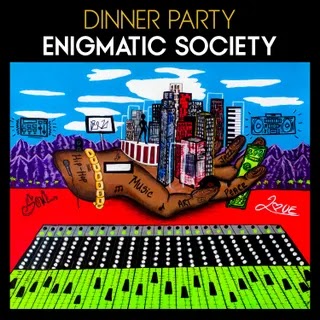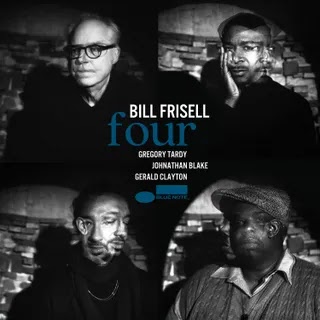The Chicago jazz composer stitches together an album of big, unanswerable questions and gorgeously orchestrated music from a host of local heroes.
It’s been five years since Rob Mazurek’s last album with Exploding Star Orchestra, and in that brief window, the Chicago jazz and avant-garde scene from which the collective first arose has enjoyed more attention than it has in decades. Dimensional Stardust was composed for a Berlin-based version of the group, but Mazurek recorded it with a lineup heavy on local heroes—longtime members Nicole Mitchell, Jeff Parker, and John Herndon are joined by Tomeka Reid, Damon Locks, and Jaimie Branch, among others. As a result, it comes off as a second coronation for this era of the city, following Makaya McCraven’s Universal Beings from 2018. But where that album highlighted the individual brilliance of Chicago soloists (alongside those from London, New York, and L.A.), Dimensional Stardust is a tightly orchestrated ensemble piece that—like many of the musicians who play on it—uses the gestures of experimental classical music and avant-garde jazz to move into fresh territory.
While previous Exploding Star Orchestra albums have made space for improvisation and soloing, everything on Dimensional Stardust was composed by Mazurek. He recorded each musician’s parts separately over the span of seven months then stitched the album together with the patience and precision of a luxury car embroiderer; if there are seams, they’re obscured by the intricate curlicues he pulls from his band. Throughout the album, he strings together long phrases of short tones, forcing his instrumentalists to play lines that, on staff paper, must have looked like a tangled pearl necklace pulled out of a drawer. On opener “Sun Core Tet (Parable 99),” he sends a spree of notes up Reid’s cello and through Macie Stewart’s violin, then back down via Mitchell’s flute. It’s a trick he repeats often, and it manages never to diminish the individuality of the players; when Mitchell, guitarist Parker, and vibraphonist Joel Ross trade lines in “A Wrinkle in Time Sets Concentric Circles Reeling,” it doesn’t feel like they’re stating one long sentence together so much as they’re considering an idea from multiple angles.
This sense of interdependence is palpable throughout Dimensional Stardust, and it’s made all the more powerful for its having been manufactured after the fact. Mazurek is a master arranger, and he fits the album’s constituent parts together in a way that defies logic. In one of the album’s most uncanny moments, he sutures a virtuosic run from Mitchell to the three-person percussion team in such a way it’s impossible to tell if Mitchell is playing her flute like a drum kit or if the percussionists are matching her polyrhythms tap-for-tap.
Elsewhere, on “Abstract Dark Energy (Parable 9),” Mazurek places a simple square of piano in the distance, giving us a focal point while an anxious bossa nova beat washes through much of the song. Much of the title track sounds as though it’s played in a long, low-ceilinged room with a thin layer of water on the ground, with the resultant compression feeling less like radio-ready loudness and more like the radiating energy of a universe waiting to be born.
Fully half of the songs on Dimensional Stardust are either titled or subtitled as parables, and it’s not hard to understand Mazurek’s attraction to the form. Parables are small stories that open up to cosmic truths. They suggest that our daily life and relationships reveal something greater about the universe itself, and that our quotidian reality is supported by untold mysteries that are nevertheless possible to understand. With his careful needlework, Mazurek stitches together an album of big, unanswerable questions and gorgeously orchestrated music, setting aside distinctions between genres, musicians, and points in time and space without losing sight of how each of these components is necessary to the whole. It rises up to gesture toward the cosmos, then returns us to life on Earth, tracing a single great parabolic arc.
















0 comments:
Post a Comment